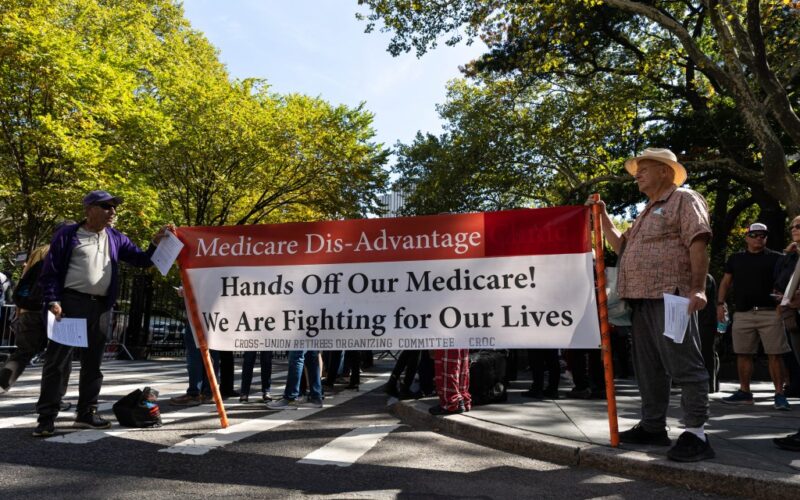This week, the highest court in New York, the Court of Appeals handed down a ruling that we all sort of saw coming: the city’s switch for its retirees from Medicare to a specialized Medicare Advantage plan can move forward, not least because the city never explicitly guaranteed employees that the health care the city would subsidize in perpetuity — and that subsidization is inarguably part of the law — would specifically be Medicare.
But despite the unanimous victory in court granting him the power to change the insurance coverage, Mayor Adams said yesterday that he is no longer pursuing the policy “at this time.” Which makes us ask where the needed $600 million in annual savings is now going to come from.
That money has to be found by this mayor or the next mayor. The court has given the mayor the power, but will he use it? We think he should.
As for the retirees attempting to navigate health care and thinking through the next months or years, what is going to happen? The faster that this issue can be resolved, the faster retirees can have some real clarity about where they stand and how to most successfully adjust after it’s been in limbo stretching two mayoral administrations now.
When Mayor Bill de Blasio and the union leaders cut this deal years ago, it stoked anxiety among retirees that the actual health care they will be provided — health care that the city promised — would nose dive, an anxiety for which there is evidentiary backing.
Some research has shown, for example, that Medicare Advantage plans tend to deny services with less basis and greater frequency than traditional Medicare. The retiree group has also found specific members who they say would face concrete barriers to care under the new program.
The city’s responses to this have often been that it is pursuing a tailored Medicare Advantage program as opposed to an off-the-shelf solution and would stringently monitor to ensure that retirees are not being unduly denied care or made to jump through excessive hoops, paying special attention to the folks who, the retirees claim, would lose specific types of critical coverage.
It is morally and legally incumbent upon city government, regardless of who happens to be leading it, to fulfill these promises. Our position has never been that the points raised by the retiree group were inherently overblown or bad faith, merely that they have failed to demonstrate their claims of being effectively thrown to the wolves have real merit.
We will also point out once more that the $600 million a year in savings that is expected to be generated from the enrollment shift will be directed towards a supplemental health insurance fund for city employees.
It was a mistake of the de Blasio administration to siphon off from this fund to pay for unrelated raises, a mistake that should not be repeated. Nonetheless, we are now in a situation where this crucial fund has run dry, and we have an opportunity to replenish it while ideally ensuring that retirees retain the same or better level of health services. But Adams’ last minute change of heart, after winning in court, only creates more uncertainty.








